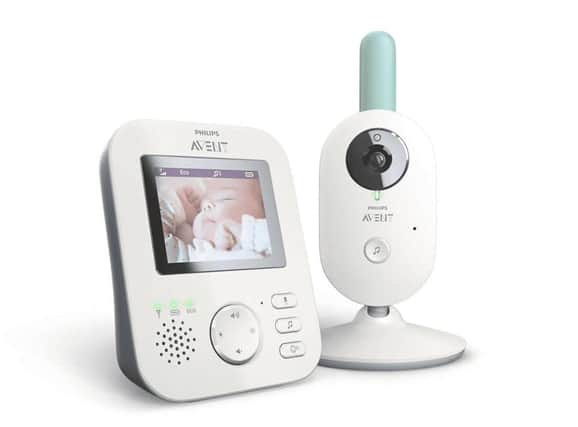A Philips baby monitor has been recalled due to fire risk - here’s what you need to know


Electronics giant Philips has been forced to recall tens of thousands of baby monitors over concerns that the devices pose a fire risk.
A notice on the company’s website said they were “voluntarily recalling” seven models of the Philips Avent Digital Video Baby Monitor.
Advertisement
Hide AdAdvertisement
Hide Ad“In very rare cases, the battery in the parent unit can overheat while plugged into the electrical connection. This poses a potential fire hazard,” said the notice.
The company apologised to customers “for any inconvenience caused”.
Is my baby monitor affected?
Philips said that the recall covered all seven models in the SCD620 series of Avent baby monitors, which were produced between January 2016 and March 2018.
The monitors in this series have the following product type number:
Advertisement
Hide AdAdvertisement
Hide AdSCD620/79SCD620/78SCD620/93SCD620/52SCD620/26SCD620/05SCD620/01
How to check your baby monitor
To check if your monitor is one of the ones at risk, Philips advises parents to look at the printed label on the bottom of the parent unit of the monitor.
Under the Philips brand name and the Avent logo, customers can find the product type number. If the product type number is one of those listed above, the monitor could be a fire risk.
Philips advises customers to then identify the serial number on a sticker on the base of the parent unit - it will start with the letters TM followed by a number and a letter.
Advertisement
Hide AdAdvertisement
Hide AdAffected devices have serial numbers that starts with the following four digits:
TM5AYYWWXXXXXXTM5BYYWWXXXXXXTM5CYYWWXXXXXX
If your product does not have one of these serial numbers, Philips said you do not need to take any further action.
My device is affected - what do I do?
Customers with affected models of the Avent baby monitor should do the following:
Unplug the monitor from the mains and remove the power adaptor from the parent unit.
Advertisement
Hide AdAdvertisement
Hide AdKeep the device switched on until the battery dies, and then dispose of it at your local recycling centre.
Philips warns that the product should not be disposed of with normal household waste, and said that correct disposal “helps prevent negative consequences for the environment and human health.”